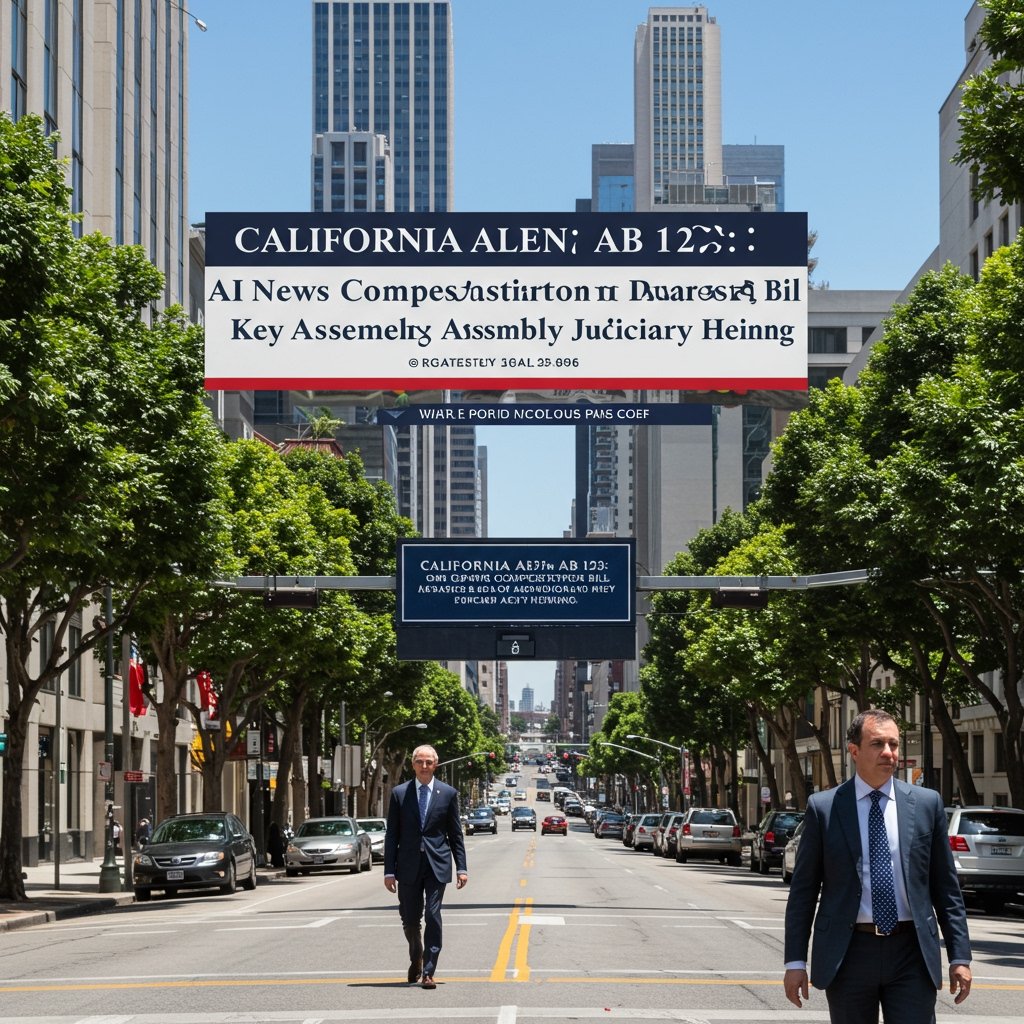California Assembly Judiciary Committee Sets Hearing on AB 123
Sacramento, CA – A pivotal legislative proposal aimed at addressing the complex relationship between artificial intelligence technology and the news publishing industry in California is set for a crucial public hearing. The California State Assembly Committee on Judiciary has officially scheduled a hearing for Assembly Bill 123 (AB 123) on March 5, 2025. This marks a significant step forward for the bill, which seeks to compel large technology companies utilizing AI to compensate news publishers for the inherent value derived from their journalistic content.
AB 123, often referred to as the “AI-in-News” bill, represents a legislative effort to navigate the evolving digital landscape where generative AI models are increasingly trained on or interact with vast datasets, including copyrighted news articles and archives. Proponents of the bill argue that news content, produced through significant investment in reporting and editorial processes, constitutes valuable raw material for AI development and operation. As AI systems leverage this content to provide information, generate summaries, or train algorithms, publishers contend they are not adequately compensated for the value extracted, which they argue contributes to the financial instability facing the news sector, particularly local journalism.
The scheduling of the March 5, 2025, hearing follows a period of initial input and active engagement from various media industry stakeholders. Notably, groups including the California News Publishers Association (CNPA) have been vocal in presenting their perspectives and concerns regarding the proposed legislation. These concerns were formally voiced as recently as February 20th, highlighting points related to the bill’s specific mechanisms, the definition of “value,” the implementation feasibility, and critically, the potential impact on the economic viability of local news outlets across the state.
The California State Assembly Committee on Judiciary serves as a key policy committee, reviewing bills related to the state’s legal framework and court system, but also often handling legislation with significant societal and economic implications, such as intellectual property, data usage, and industry regulation. The public hearing scheduled for March 5, 2025, provides a formal platform for interested parties to present testimony, offer amendments, and register their official positions on AB 123.
Stakeholders Prepare for Formal Testimony
The hearing process before the Judiciary Committee is designed to allow for a comprehensive examination of the bill’s provisions. Representatives from news publishing organizations, including members of the CNPA, are expected to testify in support of the bill’s core principle – that fair compensation is necessary to sustain the production of high-quality journalism in the digital age. They will likely detail the economic pressures facing the industry, including declining advertising revenue and subscription challenges, and argue that revenue generated from AI’s use of their content is a justified and necessary revenue stream.
Conversely, representatives from technology companies and AI developers are anticipated to raise concerns about the bill. Their testimony may focus on potential technical challenges in identifying and valuing the use of specific news content by AI, the potential chilling effect on AI innovation and development in California, or arguments that current practices fall under existing legal frameworks like fair use. They may also argue that linking to or referencing news content within AI outputs provides valuable traffic and exposure to publishers.
Beyond the primary parties, the hearing will likely hear from a range of other stakeholders. Civil liberties groups may raise questions about potential impacts on the open internet and the free flow of information. Consumer advocates could address how such compensation models might affect the accessibility and cost of information provided by AI. Legal experts may offer analysis on the bill’s legal soundness and its interaction with federal copyright law.
Significance for Local Journalism and Tech Landscape
The concerns raised by the California News Publishers Association (CNPA) on February 20th specifically highlighted the potential impact on local journalism viability. This underscores a major point of focus surrounding AB 123. Local news outlets often operate on thin margins and are crucial sources of information for communities. Proponents argue that a new revenue stream from AI usage could be vital for these organizations to continue providing essential local coverage, investigative reporting, and civic information.
The hearing on March 5, 2025, is not the final step for AB 123, but it is a critical early hurdle. The Judiciary Committee will listen to testimony, deliberate on the bill’s merits and potential drawbacks, and ultimately vote on whether to advance it to the next stage of the legislative process. If successful in the Judiciary Committee, the bill would proceed to other relevant committees, such as the Assembly Appropriations Committee if it involves state costs, before potentially heading to the full Assembly floor for a vote. Passage in the Assembly would then send the bill to the State Senate for consideration.
The debate surrounding AB 123 in California mirrors discussions happening globally regarding the intersection of AI, technology platforms, and content creation industries. The outcomes of legislative efforts like this in major markets such as California are closely watched and could potentially influence approaches in other jurisdictions.
For publishers, particularly those struggling financially, the bill represents a potential lifeline and an assertion of the value of their intellectual property in the age of AI. For technology companies, it represents a potential new regulatory burden and operational complexity.
The scheduled hearing before the California State Assembly Committee on Judiciary on March 5, 2025, provides the first opportunity for a comprehensive public legislative debate on the specifics of AB 123. The testimony and discussions that take place will be instrumental in shaping the bill’s future and could set a precedent for how California approaches the regulation of AI’s use of copyrighted content.








